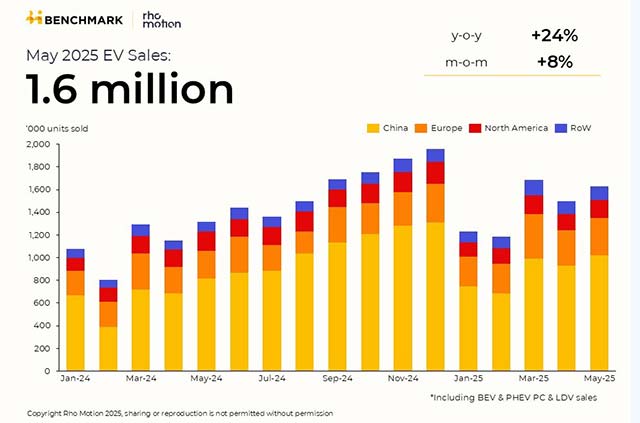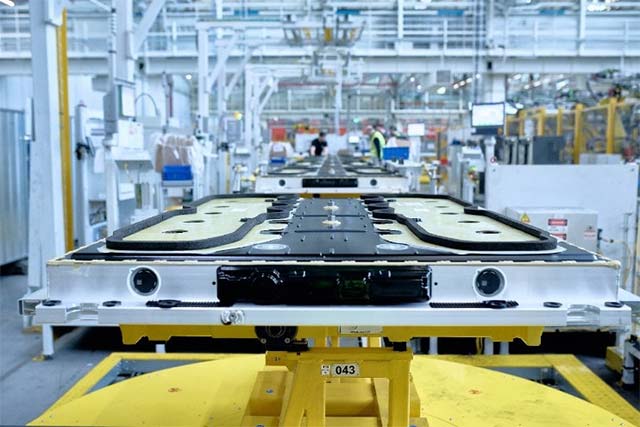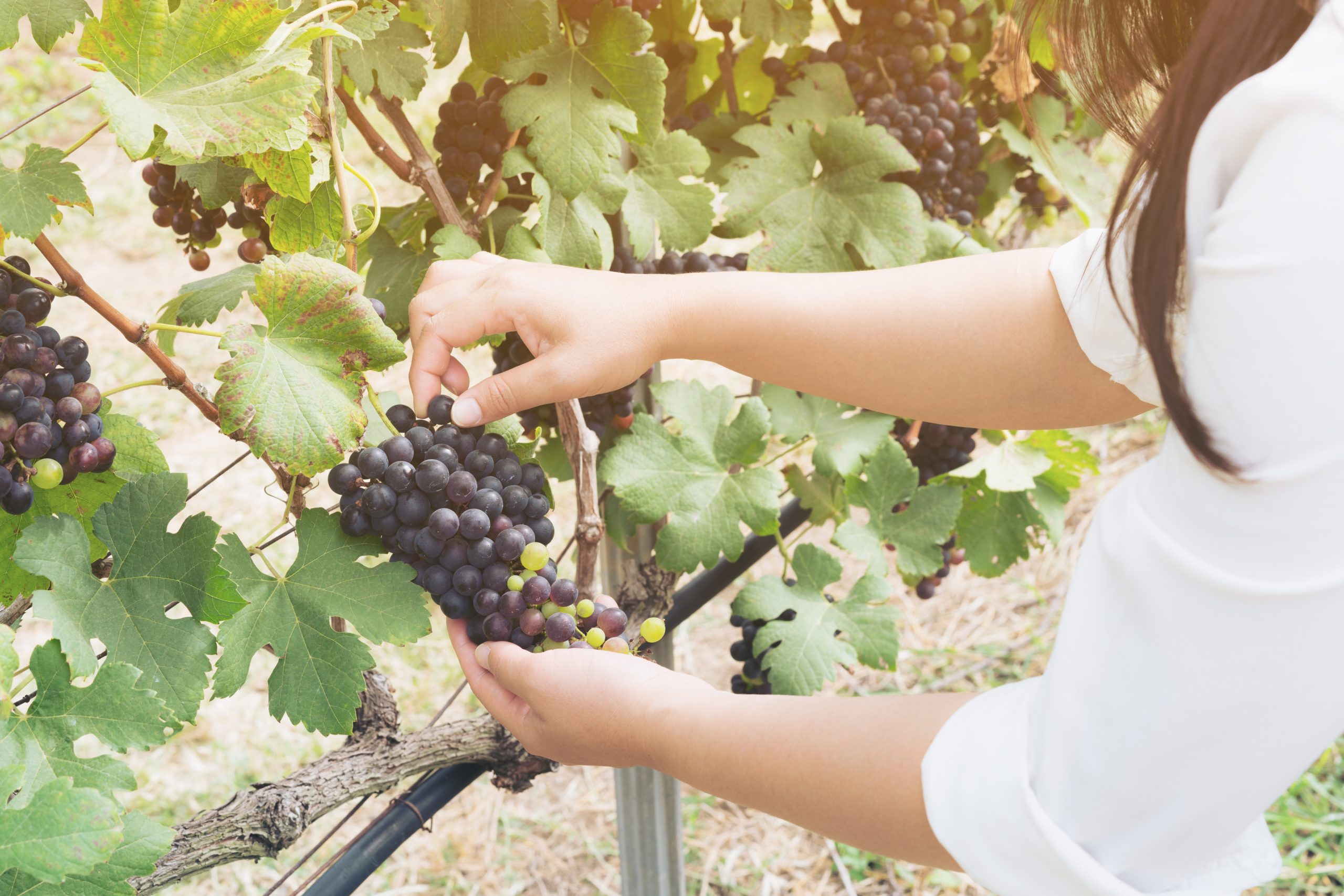Mexico, one of the world’s biggest beer producing countries, has always imported hops. But times are changing. db finds out more.
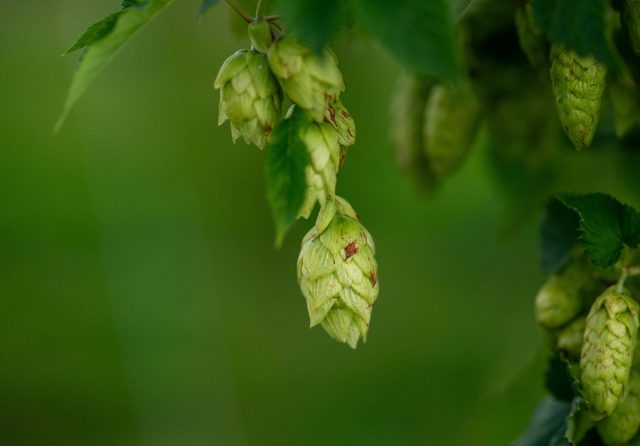
In a new move, provoked by both the threat of tariffs and the need to become more sustainable, the Mexican beer scene is set to grow hops closer to home.
Speaking about the desire to create a 100% Mexican beer, Monstruo de Agua Brewery recently revealed that there was a gap in the market, but that finding local ingredients for brewing was impossible.
Monstruo de Agua Brewery co-owner and brewer Matias Veracruz told
local press: “Since we started 12 years ago, it has always been our goal to have beer not only made in Mexico,. When we started, everyone imported everything, and there were no national vendors of malt or hops or anything. So it was always our goal to find Mexican hops.”
Monstruo de Agua had, historically, imported its hops from the northwest US from the Yakima Valley, Oregon and Idaho as well Germany, the Czech Republic, Slovenia and China, but the hope that one day there might be hops available closer to home did not diminish.
As a lone project, Miguel Loza started planting and growing hops in 2011 in Mexico’s wine region of Valle de Guadalupe with a view to assisting in being able to brew without needing to rely on imports when living in San Diego.
Originally from Ensenada, Loza then decided to move back to his hometown to try his hand at growing hops too and yet found he had no guidance nearby as well as having been warned that the soil in the area would not work well for him to embark on such an endeavour.
Loza told
Mexico News Daily: “I remember one person told me I should just grow avocados or something else because hops would never grow in Mexico.”
However, despite being put off and also struggling in his first year, Loza was able to obtain about a kilo and a half of hops from each of his 1,200 plants. It could have been the start of something, but Loza soon moved away to Texas, but revealed that he still grows a small amount of hops for his own homebrews.
Ensenada explained: “It was always more of a labour of love. It was more for the satisfaction of being able to say we have 100% Mexican hops.”
Also not put off by the terroir, in 2020 in Jalisco, Daniele Gamba began Lupex and worked in conjunction with the local university, growing fewer than 100 plants of five different varieties. According to Gamba, the farming project was able to achieve two yearly harvests of about 3.5 kilograms of hops per plant.
Additionally, back in 2020, Claudia Viloria and her partner Pepe Iracheta began what became known as Lúpulos Igor in Zacatlán de las Manzanas in Puebla and which now boasts some of the oldest hop plants of any project in Mexico. Explaining why hop growing in Mexico must become a reality, Viloria explained that it had a lot to do with working in understanding and symbiosis with Mexico’s craft beer scene and hinted that if the independent breweries were to thrive then they needed support in the form of being able to lean upon local farmers and suppliers.
Viloria said: “The craft beer industry is growing a lot and quickly, and now with the issue of the tariffs, it’s going to be even more difficult to import supplies. We’re an alternative, especially for many brewers looking to create a product that’s 100% Mexican. There aren’t that many hops producers, and to be able to, we will have to work together.”
Lúpulos Igor’s 400 plants have reportedly produced between 40–50 kilograms in each of their first two growth cycles, and this year, as the crops are set to reach full maturity. The duo has been working with Monstruo de Agua as well as Pecados de la Malta and a raft of other craft brewers and hopes to one day be able to reach 10,000 hop plants.
Orlando Lara of Pecados de la Malta explained: “When I first met the people from Lúpulos Igor, I basically purchased all the hops they had on them. The beer we made with it won awards in Mexico, Colombia and Peru. We were thrilled. If you buy at supply stores, much of [the hops] is repackaged, previously opened, old, with lots of quality issues. So, instead, I started to buy directly from Yakima Valley in Washington or New Zealand, but the delivery takes time, and that also degrades the quality. The resin flavors of Lúpulos Igor’s experimental varieties, you are never going to find in prepackaged hops.”
In 2022, GroAltos, was created by Oscar Martínez who now also has 1,500 one-year-old hop plants successfully growing on less than a hectare of land and yet hopes to expand to 50 times the size in the future. He has, however, been told to keep his cards close to his chest and not share his learnings - advice he feels is naive if the sector is to expand in any meaningful way at all to assist local breweries in Mexico.
Martínez revealed: “I had people tell me don’t talk about the lamps you are using, don’t give away your information. But at the end of the day, in order for the industry to grow, there has to be some level of transparency. By hiding the information, you make yourself feel important, but the truth is you’re just like everyone else; what’s really valuable is your experience.”
Gamba suggested that a better way of working would be for brewers to unite in support of growers and become investors who could then be paid back during harvest time. But, as Martínez points out, ideally, the government would support the sector and recognise that local growers working with breweries was some assistance to the economy.
He insisted: “There needs to be more awareness developed that hops are strategic for the beer industry — one of Mexico’s biggest exports, and that this has to do with commercial sovereignty.”
From a sustainability perspective, reports highlighted how there is a common assumption in Mexico to suggest that the cost to set up and run a hop farm is much less than the energy costs to import them from 2,600 miles away. This, it has been noted, is a notion that is not supported by any evidence and so some more transparent data on what makes the most sense environmentally would be welcomed by farmers.
Despite the hurdles, Monstruo de Agua, Pecados de la Malta and others in the business of making 100% Mexican beer, Mexican hops have become a priority and, by their own confession, have admitted that the development of the sector is poised to shake up the sector.
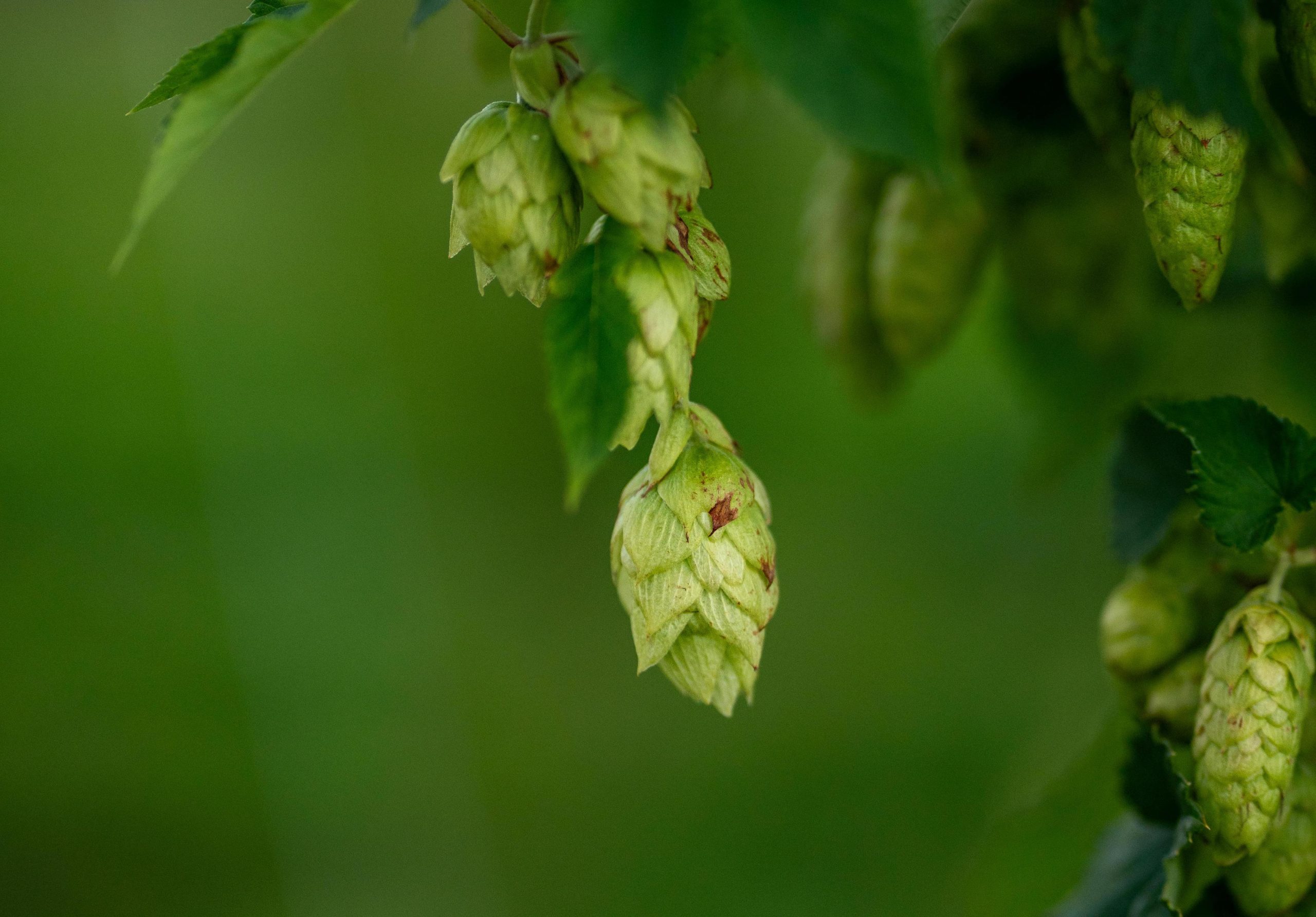
 In a new move, provoked by both the threat of tariffs and the need to become more sustainable, the Mexican beer scene is set to grow hops closer to home.
Speaking about the desire to create a 100% Mexican beer, Monstruo de Agua Brewery recently revealed that there was a gap in the market, but that finding local ingredients for brewing was impossible.
Monstruo de Agua Brewery co-owner and brewer Matias Veracruz told local press: “Since we started 12 years ago, it has always been our goal to have beer not only made in Mexico,. When we started, everyone imported everything, and there were no national vendors of malt or hops or anything. So it was always our goal to find Mexican hops.”
Monstruo de Agua had, historically, imported its hops from the northwest US from the Yakima Valley, Oregon and Idaho as well Germany, the Czech Republic, Slovenia and China, but the hope that one day there might be hops available closer to home did not diminish.
As a lone project, Miguel Loza started planting and growing hops in 2011 in Mexico’s wine region of Valle de Guadalupe with a view to assisting in being able to brew without needing to rely on imports when living in San Diego.
Originally from Ensenada, Loza then decided to move back to his hometown to try his hand at growing hops too and yet found he had no guidance nearby as well as having been warned that the soil in the area would not work well for him to embark on such an endeavour.
Loza told Mexico News Daily: “I remember one person told me I should just grow avocados or something else because hops would never grow in Mexico.”
However, despite being put off and also struggling in his first year, Loza was able to obtain about a kilo and a half of hops from each of his 1,200 plants. It could have been the start of something, but Loza soon moved away to Texas, but revealed that he still grows a small amount of hops for his own homebrews.
Ensenada explained: “It was always more of a labour of love. It was more for the satisfaction of being able to say we have 100% Mexican hops.”
Also not put off by the terroir, in 2020 in Jalisco, Daniele Gamba began Lupex and worked in conjunction with the local university, growing fewer than 100 plants of five different varieties. According to Gamba, the farming project was able to achieve two yearly harvests of about 3.5 kilograms of hops per plant.
Additionally, back in 2020, Claudia Viloria and her partner Pepe Iracheta began what became known as Lúpulos Igor in Zacatlán de las Manzanas in Puebla and which now boasts some of the oldest hop plants of any project in Mexico. Explaining why hop growing in Mexico must become a reality, Viloria explained that it had a lot to do with working in understanding and symbiosis with Mexico’s craft beer scene and hinted that if the independent breweries were to thrive then they needed support in the form of being able to lean upon local farmers and suppliers.
Viloria said: “The craft beer industry is growing a lot and quickly, and now with the issue of the tariffs, it’s going to be even more difficult to import supplies. We’re an alternative, especially for many brewers looking to create a product that’s 100% Mexican. There aren’t that many hops producers, and to be able to, we will have to work together.”
Lúpulos Igor’s 400 plants have reportedly produced between 40–50 kilograms in each of their first two growth cycles, and this year, as the crops are set to reach full maturity. The duo has been working with Monstruo de Agua as well as Pecados de la Malta and a raft of other craft brewers and hopes to one day be able to reach 10,000 hop plants.
Orlando Lara of Pecados de la Malta explained: “When I first met the people from Lúpulos Igor, I basically purchased all the hops they had on them. The beer we made with it won awards in Mexico, Colombia and Peru. We were thrilled. If you buy at supply stores, much of [the hops] is repackaged, previously opened, old, with lots of quality issues. So, instead, I started to buy directly from Yakima Valley in Washington or New Zealand, but the delivery takes time, and that also degrades the quality. The resin flavors of Lúpulos Igor’s experimental varieties, you are never going to find in prepackaged hops.”
In 2022, GroAltos, was created by Oscar Martínez who now also has 1,500 one-year-old hop plants successfully growing on less than a hectare of land and yet hopes to expand to 50 times the size in the future. He has, however, been told to keep his cards close to his chest and not share his learnings - advice he feels is naive if the sector is to expand in any meaningful way at all to assist local breweries in Mexico.
Martínez revealed: “I had people tell me don’t talk about the lamps you are using, don’t give away your information. But at the end of the day, in order for the industry to grow, there has to be some level of transparency. By hiding the information, you make yourself feel important, but the truth is you’re just like everyone else; what’s really valuable is your experience.”
Gamba suggested that a better way of working would be for brewers to unite in support of growers and become investors who could then be paid back during harvest time. But, as Martínez points out, ideally, the government would support the sector and recognise that local growers working with breweries was some assistance to the economy.
He insisted: “There needs to be more awareness developed that hops are strategic for the beer industry — one of Mexico’s biggest exports, and that this has to do with commercial sovereignty.”
From a sustainability perspective, reports highlighted how there is a common assumption in Mexico to suggest that the cost to set up and run a hop farm is much less than the energy costs to import them from 2,600 miles away. This, it has been noted, is a notion that is not supported by any evidence and so some more transparent data on what makes the most sense environmentally would be welcomed by farmers.
Despite the hurdles, Monstruo de Agua, Pecados de la Malta and others in the business of making 100% Mexican beer, Mexican hops have become a priority and, by their own confession, have admitted that the development of the sector is poised to shake up the sector.
In a new move, provoked by both the threat of tariffs and the need to become more sustainable, the Mexican beer scene is set to grow hops closer to home.
Speaking about the desire to create a 100% Mexican beer, Monstruo de Agua Brewery recently revealed that there was a gap in the market, but that finding local ingredients for brewing was impossible.
Monstruo de Agua Brewery co-owner and brewer Matias Veracruz told local press: “Since we started 12 years ago, it has always been our goal to have beer not only made in Mexico,. When we started, everyone imported everything, and there were no national vendors of malt or hops or anything. So it was always our goal to find Mexican hops.”
Monstruo de Agua had, historically, imported its hops from the northwest US from the Yakima Valley, Oregon and Idaho as well Germany, the Czech Republic, Slovenia and China, but the hope that one day there might be hops available closer to home did not diminish.
As a lone project, Miguel Loza started planting and growing hops in 2011 in Mexico’s wine region of Valle de Guadalupe with a view to assisting in being able to brew without needing to rely on imports when living in San Diego.
Originally from Ensenada, Loza then decided to move back to his hometown to try his hand at growing hops too and yet found he had no guidance nearby as well as having been warned that the soil in the area would not work well for him to embark on such an endeavour.
Loza told Mexico News Daily: “I remember one person told me I should just grow avocados or something else because hops would never grow in Mexico.”
However, despite being put off and also struggling in his first year, Loza was able to obtain about a kilo and a half of hops from each of his 1,200 plants. It could have been the start of something, but Loza soon moved away to Texas, but revealed that he still grows a small amount of hops for his own homebrews.
Ensenada explained: “It was always more of a labour of love. It was more for the satisfaction of being able to say we have 100% Mexican hops.”
Also not put off by the terroir, in 2020 in Jalisco, Daniele Gamba began Lupex and worked in conjunction with the local university, growing fewer than 100 plants of five different varieties. According to Gamba, the farming project was able to achieve two yearly harvests of about 3.5 kilograms of hops per plant.
Additionally, back in 2020, Claudia Viloria and her partner Pepe Iracheta began what became known as Lúpulos Igor in Zacatlán de las Manzanas in Puebla and which now boasts some of the oldest hop plants of any project in Mexico. Explaining why hop growing in Mexico must become a reality, Viloria explained that it had a lot to do with working in understanding and symbiosis with Mexico’s craft beer scene and hinted that if the independent breweries were to thrive then they needed support in the form of being able to lean upon local farmers and suppliers.
Viloria said: “The craft beer industry is growing a lot and quickly, and now with the issue of the tariffs, it’s going to be even more difficult to import supplies. We’re an alternative, especially for many brewers looking to create a product that’s 100% Mexican. There aren’t that many hops producers, and to be able to, we will have to work together.”
Lúpulos Igor’s 400 plants have reportedly produced between 40–50 kilograms in each of their first two growth cycles, and this year, as the crops are set to reach full maturity. The duo has been working with Monstruo de Agua as well as Pecados de la Malta and a raft of other craft brewers and hopes to one day be able to reach 10,000 hop plants.
Orlando Lara of Pecados de la Malta explained: “When I first met the people from Lúpulos Igor, I basically purchased all the hops they had on them. The beer we made with it won awards in Mexico, Colombia and Peru. We were thrilled. If you buy at supply stores, much of [the hops] is repackaged, previously opened, old, with lots of quality issues. So, instead, I started to buy directly from Yakima Valley in Washington or New Zealand, but the delivery takes time, and that also degrades the quality. The resin flavors of Lúpulos Igor’s experimental varieties, you are never going to find in prepackaged hops.”
In 2022, GroAltos, was created by Oscar Martínez who now also has 1,500 one-year-old hop plants successfully growing on less than a hectare of land and yet hopes to expand to 50 times the size in the future. He has, however, been told to keep his cards close to his chest and not share his learnings - advice he feels is naive if the sector is to expand in any meaningful way at all to assist local breweries in Mexico.
Martínez revealed: “I had people tell me don’t talk about the lamps you are using, don’t give away your information. But at the end of the day, in order for the industry to grow, there has to be some level of transparency. By hiding the information, you make yourself feel important, but the truth is you’re just like everyone else; what’s really valuable is your experience.”
Gamba suggested that a better way of working would be for brewers to unite in support of growers and become investors who could then be paid back during harvest time. But, as Martínez points out, ideally, the government would support the sector and recognise that local growers working with breweries was some assistance to the economy.
He insisted: “There needs to be more awareness developed that hops are strategic for the beer industry — one of Mexico’s biggest exports, and that this has to do with commercial sovereignty.”
From a sustainability perspective, reports highlighted how there is a common assumption in Mexico to suggest that the cost to set up and run a hop farm is much less than the energy costs to import them from 2,600 miles away. This, it has been noted, is a notion that is not supported by any evidence and so some more transparent data on what makes the most sense environmentally would be welcomed by farmers.
Despite the hurdles, Monstruo de Agua, Pecados de la Malta and others in the business of making 100% Mexican beer, Mexican hops have become a priority and, by their own confession, have admitted that the development of the sector is poised to shake up the sector. 





















